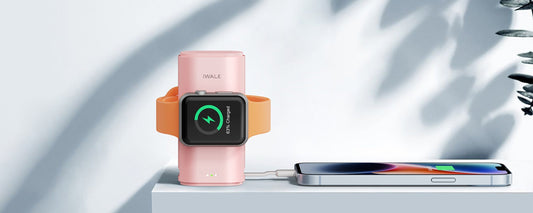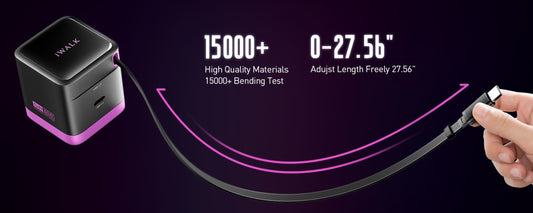As iPhone users become increasingly aware of battery health, many are now paying closer attention to how they charge their devices. Seeing a battery health reading below 90% can trigger concern, especially when it happens within the first year of use. While it's easy to blame fast charging or overnight charging, the real issue often lies in the compatibility and quality of the charging accessories being used.

Not All Fast Charging Is Created Equal
In today's market, fast charging is a common selling point. But without a clear understanding of what “fast” means in practice, users can unknowingly expose their devices to inconsistent voltages, overheating, and even long-term damage.
By definition, fast charging refers to increasing voltage or current to reduce charging time. However, not all iPhone chargers or power banks support the protocols Apple devices require for safe and efficient charging.
Most iPhones rely on the Power Delivery (PD) protocol for fast charging via USB-C, and ideally, they should be paired with MFi-certified accessories. Using high-wattage, non-certified chargers might fill the battery faster, but may come at the cost of elevated heat and battery stress, especially when repeated over time.
Understanding the Balance Between Speed and Safety
Apple's battery technology is optimized for steady, controlled charging. That’s why pairing your iPhone with an MFi-certified power bank designed for iOS devices can make a significant difference. Compact power banks that provide modest output (around 15W or lower) are especially ideal for overnight charging or quick daytime top-ups.
The iWALK LinkPod 4 Pro (4500mAh) and LinkPod 3 Pro (3500mAh) are examples of portable chargers that balance convenience and device safety. Both feature:
Built-in Lightning connector — no cables required
MFi certification — fully compatible with iPhone's fast charging standards

Pocket-sized form factor — ideal for commutes, business trips, or campus life

Moderate capacity — enough for a full top-up, while avoiding excessive heat
These devices support fast charging through the PD protocol, without pushing the battery beyond its designed thresholds.
When Gentle Charging is the Smart Choice
While high-capacity chargers are useful for powering tablets or laptops, they are not always the best choice for iPhones, especially if battery health is a priority.
Choosing a portable charger with moderate output can actually be better for your phone's battery in the long run. This is especially true for users who charge their devices overnight or frequently top up throughout the day. A compact power bank charger that supports PD ensures that the phone receives only the power it needs—no more, no less.
Three Pillars of Safe Fast Charging
To make the most of fast charging without compromising your device’s health, ensure the following:
Your iPhone supports fast charging (iPhone 8 or newer)
You use a certified fast-charging cable (e.g., 3A/5A USB-C to Lightning)
Your power bank or charger supports PD protocol and is MFi-certified
Combining these three ensures compatibility, efficiency, and most importantly, safety.
Conclusion: Battery Longevity Starts with Charging Smarter
Battery health isn’t just about saving power—it’s about choosing accessories that align with your device's design. A thoughtful approach to charging, especially when it comes to selecting the right iPhone charger or power bank, can significantly extend the lifespan of your device.
Rather than chasing maximum wattage, opt for MFi-certified solutions that provide stable, device-specific output. Products like the LinkPod 3 Pro and LinkPod 4 Pro offer a balanced solution for users who want both speed and peace of mind.
Investing in smarter charging habits today means fewer battery replacements—and better iPhone performance—for the future.










